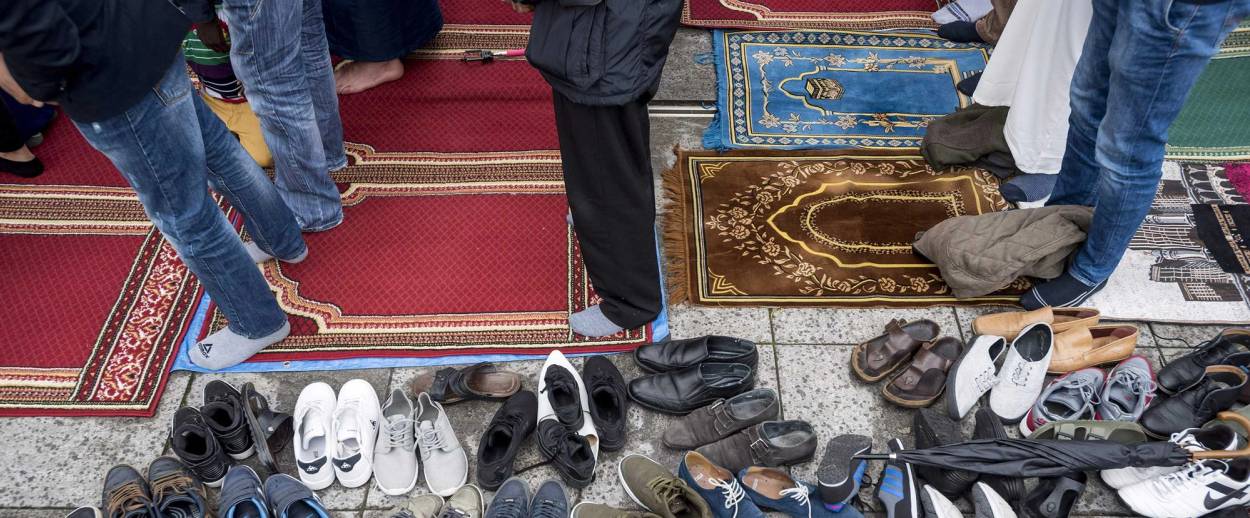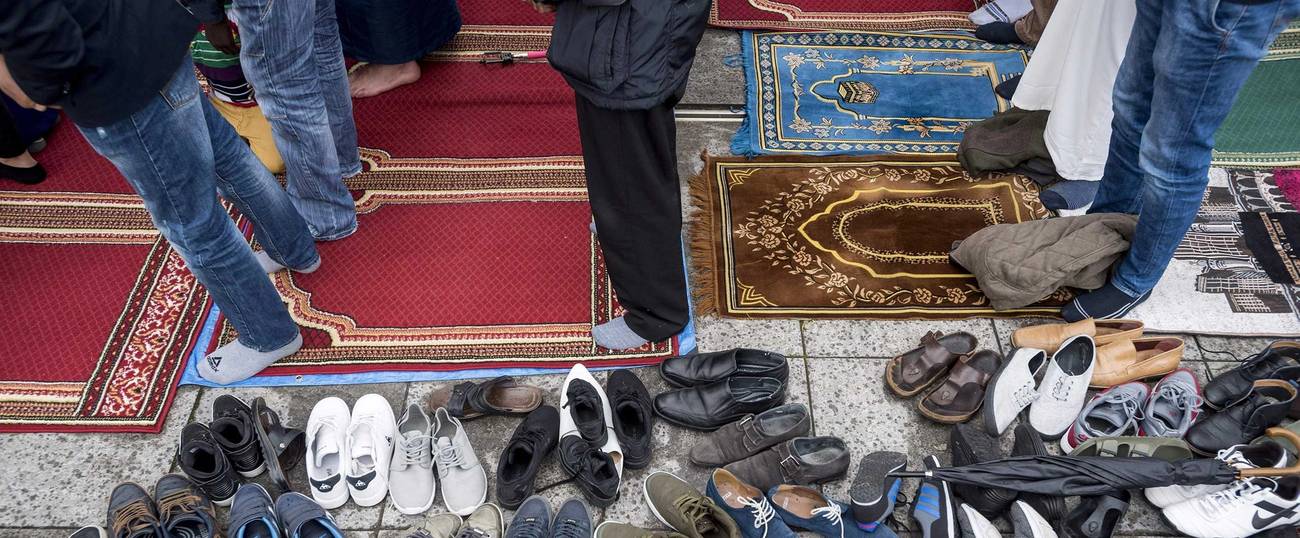An Israeli Reporter, Undercover Among Europe’s Muslim Immigrants
Zvi Yehezkeli’s work is a riveting and often terrifying look into a continent in flux




In theory, Zvi Yehezkeli is the kind of reporter good liberals like to fantasize about. He covers the Arab world, speaks the language fluently, and commands the customs and tenets of Islam with impressive erudition. He goes where the story is, even if that means having the occasional murderous goon fire a semiautomatic in his general direction. And he is out to observe the world, not confirm his own biases.
Which is why it’s odd that, these days, Zvi Yehezkeli is also the reporter good liberals, at least in Israel, like to hate. After decades spent reporting on the Palestinian Authority, Yehezkeli took his family’s heritage—his parents immigrated to Israel from Iraq—and his rich Arabic and traveled to Europe, to look into the lives of young Muslims there. The result has been a stream of documentaries that began airing on Israeli television in 2012, in which Yehezkeli, often disguised as an Arab, entices his interviewees to admit the kind of inconvenient truth one rarely hears elsewhere. In Sweden, Germany, Belgium, Holland, France, and England, he mostly meets disdainful men who, having left their faltering nations for the comfort of the European continent, look at their kind hosts with nothing but contempt while adhering to an increasingly radicalized version of Islam. Pundits and intellectuals were quick to accuse Yehezkeli of racism, but viewers, in Israel and elsewhere, found his grim insights fascinating.
Yehezkeli’s latest production, a five-part series called “False Identity,” premiered on Israel’s Channel 10 last month, but thanks to the internet’s disregard for copyright, his earlier work is readily available, in translation, on a host of websites. But the question of how to go ahead and watch it is more complicated.
For those who like their schadenfreude undiluted, taking Yehezkeli’s work at face value can be a treat. There’s certainly a reptilian sort of pleasure to be had when watching the beautiful people of Europe, those long-time critics of Israel and its treatment of the Palestinians, get sucker-punched by their protégés. When two smiley young women who left the comforts of Lebanon’s Shatila refugee camp, for example, tell Yehezkeli with disgust that they do not recognize their Swedish ID cards—they collect all the financial benefits of asylum but deny any allegiance to their new Nordic neighbors—it’s hard not to feel as if the proverbial chickens have come home to roost.
But the beauty of Yehezkeli’s work goes deeper, and it lies as much in who he is as in what he does. The scenes are largely repetitive, a blur of angry bearded men who promise that their religion—or their narrow interpretation of it—will soon force the decadent and weak Europeans to succumb. But even if you’re not inclined to agree with this particular point of view, you’re still mindful that the man you’re watching is an Israeli Jew, and that he’s walking the streets of Europe—the same streets that not too long ago were the backdrop to the Jewish people’s greatest calamity—and reporting on a problem that is, thankfully, not his own.
It’s a perspective that changes everything. At some point, for example, Yehezkeli stands outside a mosque in Luton, England, as a recording plays on the soundtrack. It’s the last will and testament of the mosque’s most notorious attendant, one Taimour Abdulwahab al-Abdaly, who, two weeks before Christmas of 2010, detonated two bombs in the center of Stockholm, luckily causing no casualties but his own. “To all Muslims of Sweden I want to say, stop degrading yourselves, stop trying to make them like you,” al-Abdaly says in the recording. “This is the time to fight back, not to wait anymore. Be violent, do not be afraid of death.”
In the hands of anyone else, the tape would’ve been just another titillating bit of evidence supporting the thesis that East and West shan’t meet save on history’s battlefield, and Yehezkeli interviews his share of politicians and academics who support precisely this idea. But Yehezkeli hardly needs Europe’s blowhards to tell him what’s what: Unlike them, he takes the trouble to speak to the Muslim immigrants in their language, and he sees the intricacies of their situation. When an Iraqi woman in Malmö threatens to make the Swedes pay if they refuse to allow her son to join her, for example, we see not a sinister enemy but a woman mad with grief who, understandably, puts the well-being of her own family above the abstractions of geopolitics and the banners of ideology.
Yehezkeli understands all of that perfectly well, and he also understands that the woman needn’t be a caricature to pose a real challenge to her Swedish neighbors. More than a century ago, Europe’s Jews addressed similar sentiments by subscribing to Zionism, which culminated in their return to their ancestral homeland and a miraculous declaration of independence just three years after the horrors of the Holocaust. And although many of Yehezkeli’s interviewees speak of the European Union as an Islamic nation in a chrysalis, it’s unlikely that a Muslim Herzl will soon arise to redeem the anxious mother from Malmö and millions of others from their discontent.
Unlike so many other observers of this great human drama, Yehezkeli apologizes neither for the woman nor her Swedish hosts. As an Israeli, he owes no historical debt to either one, a vantage point that offers even the most partisan of viewers the chance to see the continent and its struggle in a whole new way, unburdened by either the past and its ghosts or the present and its steely slogans. Walking the streets of Europe, he hears the kind of crackling that comes just before the crack, a sound any Jew, even one whose parents were born in Iraq, immediately recognizes.
***
Like this article? Sign up for our Daily Digest to get Tablet Magazine’s new content in your inbox each morning.
Liel Leibovitz is editor-at-large for Tablet Magazine and a host of its weekly culture podcast Unorthodox and daily Talmud podcast Take One. He is the editor of Zionism: The Tablet Guide.